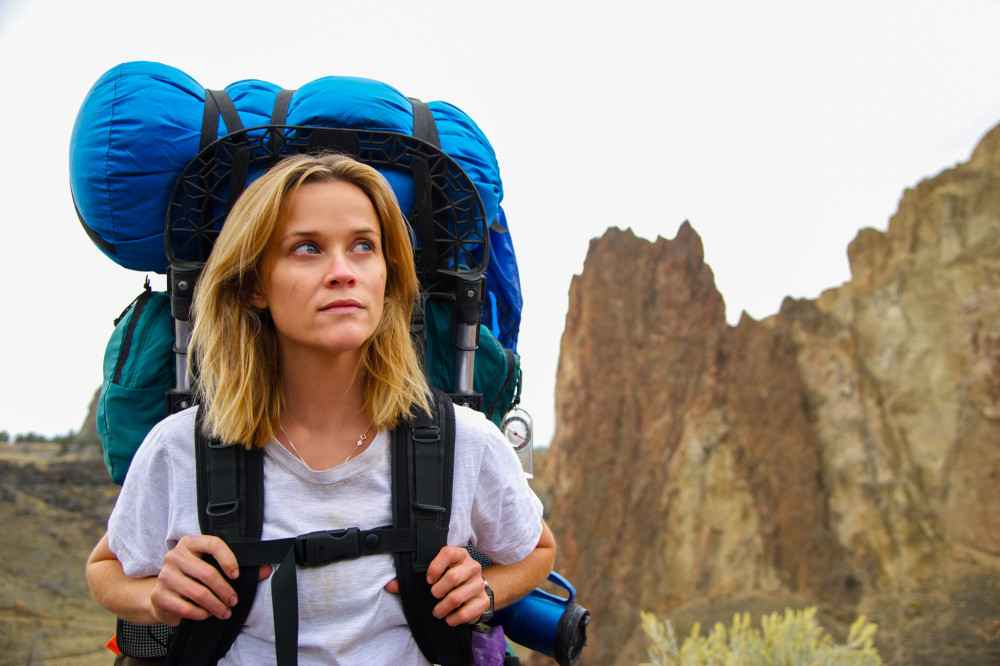By Susan Reimer
The Baltimore Sun.
She divorced her husband, sold all her stuff, bought an outrageous amount of camping gear and set out to walk the Pacific Crest Trail, a trek of more than 1,000 miles from the Mojave Desert to Washington state.
She made it, but that wasn’t the point. That was never the point.
Cheryl Strayed waited a long time to tell the story of that walk. Seventeen years, in fact. But when she did unpack all the physical and psychic pain of that journey, it was as vivid as if she had just walked off the trail yesterday.
“Wild: From Lost to Found on the Pacific Crest Trail” is the story of what came after her unbearable grief at her mother’s early death and of her descent into heroin and careless sex.
Actress Reese Witherspoon, anxious to find strong female characters for her fledgling production company, snapped up Ms. Strayed’s book before it was even published, and the movie, starring Ms. Witherspoon, is in theaters now.
It is quite remarkable.
This isn’t a story about redemption. It isn’t a story about healing. It isn’t an allegory about finding a right path. It isn’t a story about triumph. Ms. Witherspoon’s character is as filled with grief and doubt at the end of her journey as she was at the beginning.
It is a story about spending 100 days alone with yourself and the kind of self-acceptance that is waiting at the bottom of your well when you have used up everything else.
“Wild” isn’t your standard holiday romantic comedy, with a happy ending under the tree. But it is a movie to see with your girlfriends. It is a movie women will understand, even if they have never pitched a tent on the side of a mountain.
Laura Dern plays Cheryl’s mother in flashbacks, an impossibly optimistic woman who flees an abusive marriage with her two small children for a life of poverty and uncertainty.
Cheryl challenges her mother’s unfounded cheerfulness — doesn’t she get how miserable her life is? And the older woman shoots back, “There is nothing I don’t get. But then what?”
As cynical and dismissive as her daughter can be of her, Bobbi is nonetheless the love of Cheryl’s life and her death from cancer at 45 — Cheryl is 22 — untethers her.
She binges on self-destruction for four years, winding up waiting tables in Minnesota, until she decides to leave and — she has never even camped — hike the Pacific Crest Trail, “to walk myself back to the woman my mother raised.”
Cheryl isn’t a particularly likable woman at the beginning of the trail, and she isn’t much of a Pollyanna at the end of it, either. She is flinty. She has a lot of edges. The only warmth is from the sun on her face. Ms. Witherspoon’s performance walks that cliff’s edge between our investment in her character and our disinterest, and there is talk of an Oscar.
We aren’t cheering for Cheryl. She doesn’t capture our hearts. But we can’t look away. Ms. Witherspoon is in every frame of this movie, but even the majestic scenery of the Pacific Northwest cannot distract us from her face, her stoicism in the midst of hardship and hurt. We want to know what is going on behind those eyes.
A.O. Scott, movie critic for the New York Times, said the movie “celebrates the importance of mistakes,” and I think he’s got that almost right.
Cheryl Strayed wasn’t trying to lose her grief, she wasn’t looking for atonement. She was looking for a way to accept her life for what it was. That is a walk we are all taking.














































































































































































































































































































































































